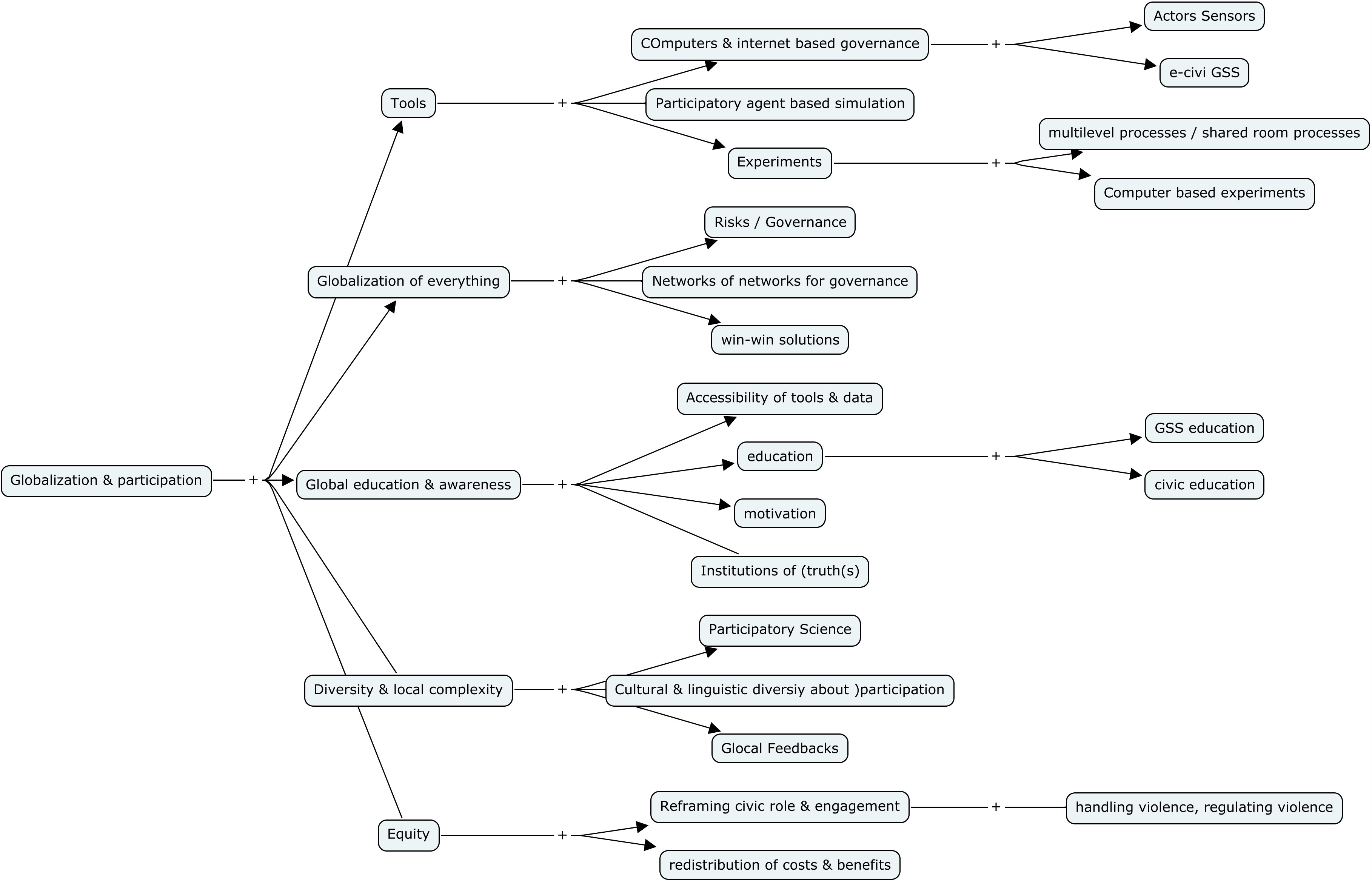Call for Papers
An era of global challenges and changes is impacting national and regional agendas and policies. Interest in global systems science is a response to greater appreciation of planetary level changes and international challenges. It involves revisiting our approach to decision-and policy-making in a way that is fit to address the uncertainty embedded in global systems. At the same time, the projection of a large share of social interactions on a digital space offers opportunities for the development of collective foresight that might provide stronger support for better policies. It allows for a better understanding of social dynamics, for example the formation of collective narratives, of norms, the acceptance or the refusal of regulation. At a more theoretical level, the observation of multiple networks of relationships can offer new definitions for the society as well as for the individual and hence revisit the dichotomy between micro and macro.
In the framework of the third Global Systems Science conference, we invite the submission of papers that contribute to the development of this research agenda on the theme of Uncertainty, Digital Science and the Long Term. Topics of interest include (but are not limited to):
- Pragmatic approaches to decision-making in policy-relevant contexts
- Global futures and policy-making
- Institutions designed for the long-term
- Formation of collective narratives and discourses
- Networked foresight
- Multi-scale approaches to social phenomena
Contributions with a strong contextual dimension, such as cities or green growth policy, are particularly welcome.
Key references (to be completed)
– Flowers, B., Kupers, R., Mangalagiu, D., Ramirez, R., Ravetz, J., Selsky, J., Wasden, C. and Wilkinson, A. (2010) “Beyond the Financial Crisis, Oxford: The Oxford Scenarios”, Oxford University.
– Gigerenzer, G. (2008). “Rationality for mortals: How people cope with uncertainty.” New York: Oxford University Press.
– Latour, B., Jensen, P., Venturini, T., Grauwin, S., & Boullier, D. (2012). ‘The whole is always smaller than its parts’–a digital test of Gabriel Tardes’ monads. The British journal of sociology, 63(4), 590-615.
– Lane, D. A., & Maxfield, R. R. (2005). Ontological uncertainty and innovation. Journal of evolutionary economics, 15(1), 3-50.
– Tuckett, D., Smith, R. and Nyman, R. (2013) “A computer algorithmic investigation of conviction narratives in unstructured data sources.”, forthcoming.

